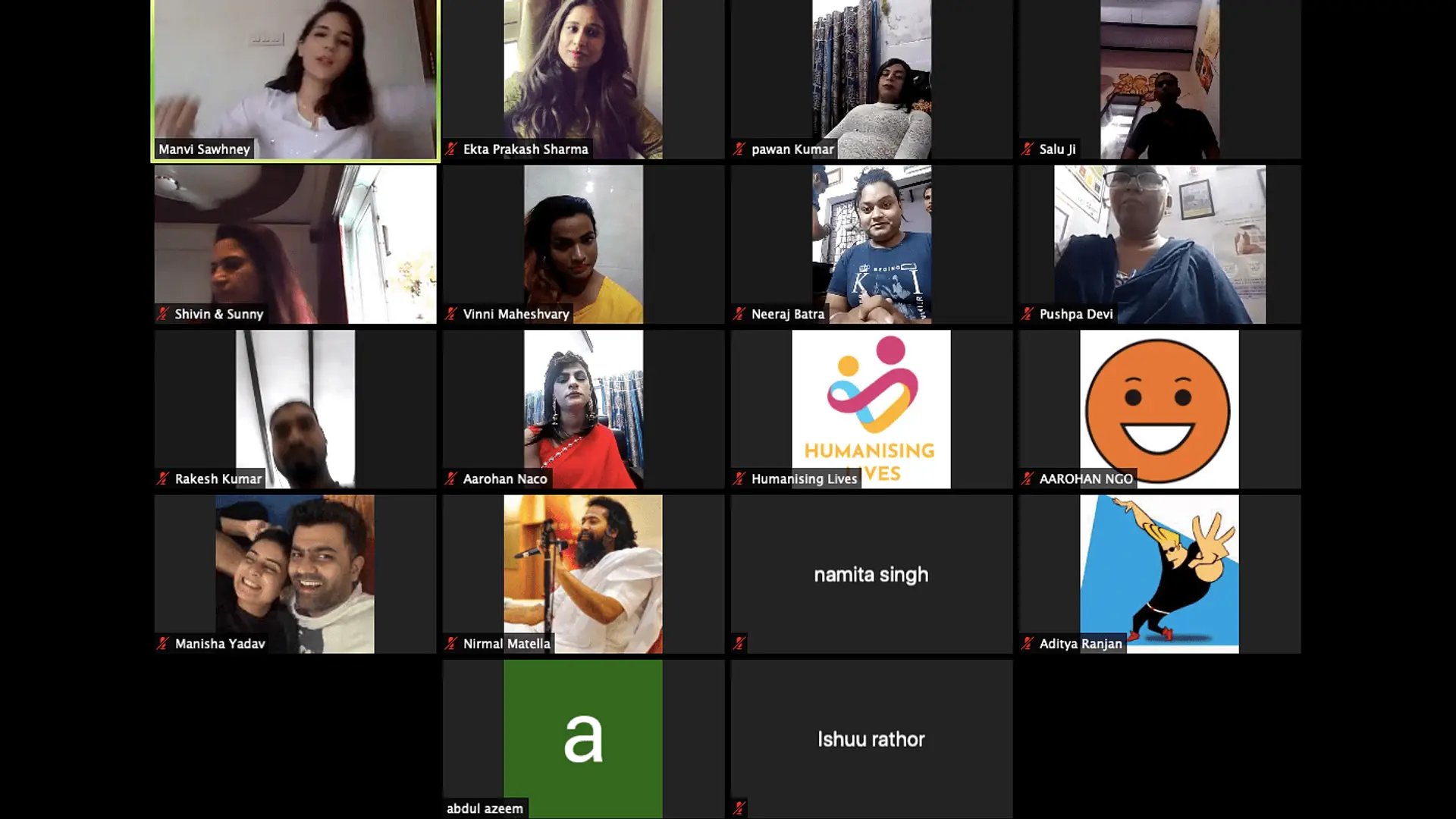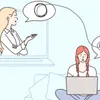How this non-profit is ‘humanising’ lives and helping individuals heal from trauma
During Mental Health Awareness Week, we share the story of Humanising Lives, a non-profit that has been aiding citizens and helping them cope with the pandemic.
Since March 2020, the populace has been advised to stay at home due to the ongoing pandemic and its dangers. But ever since the lockdown was declared, a number of businesses went into loss, in addition to millions of people losing their jobs across the world.
Such widespread misery, stagnation, and confinement to the homes led to a rise in the number of mental health issues as well. To help people cope, several organisations and individuals are taking the chance to create awareness about mental health. One such organisation is Humanising Lives.
Humanising Lives is a non-profit organisation that helps individuals humanise their lives, and heal them from the trauma of the normalisation of everyday struggles, which eventually results in poor mental and physical health.
It emerged out of the need to address the turmoil that people face in their everyday lives, leading to worsening mental health and issues triggered by the pandemic.
“I thought if we can have an organisation to pacify the roadblocks by just being active listeners to the problems that people are facing, no matter how trivial or severe, our purpose is fulfilled,” Ekta Prakash Sharma, Director and CEO of Humanising Lives, tells SocialStory.
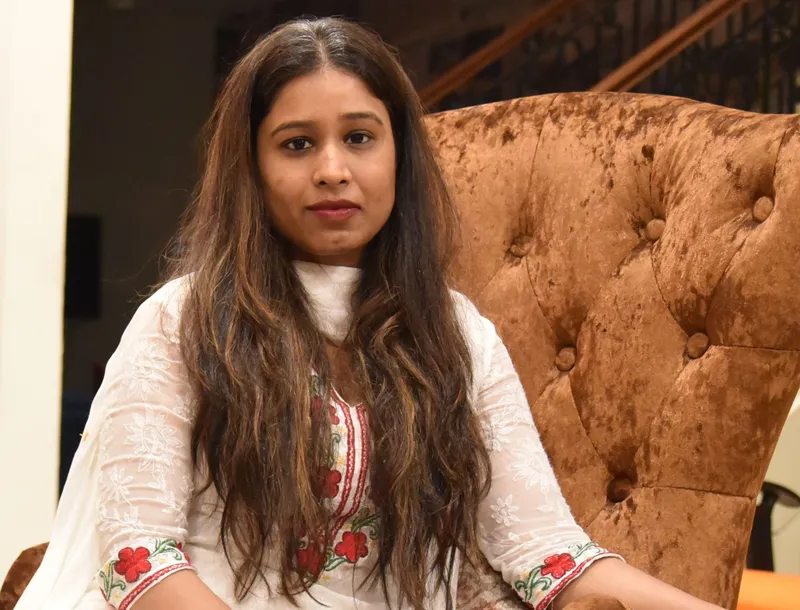
Ekta Prakash Sharma
Through active listening, pro-bono therapy sessions, and consequent suggestions and feedbacks, the non-profit tries to bring back normalcy into people's lives during this turbulent phase.
“Isolation and social distancing can be harder on some people than others. It's extremely prudent that we try and help to create a balanced environment and be there for each other,” she says.
Identifying the problem
The impact of the pandemic on the mental health of people has been multi-fold, and its consequences are expected to create a ripple effect in the coming years.
“Many clients were struggling with depression, anxiety and panic attacks brought about by the lockdown and COVID-19. They would feel isolated and were face-to-face with the anxiety of their mortality,” says Ekta.
She further adds that the uncertain and perpetually changing socio-economic and healthcare landscape in the country (and the world) would put them at unease. They had to cope with maintaining long-distance relationships with their loved ones, or once things became slightly better, had to adjust to reverting to a "normal" life.
“Not being able to separate spaces (work, home, and recreational), unable to maintain boundaries with families, and the lack of psychoeducational know-how to take care of themselves, are just some of the few mental and emotional struggles that people encountered,” she says.
Humanising Lives
The non-profit believes in both dissemination and service of information around mental health issues. For the latter, it uses various social media platform and the website to give a background as to why it wants to help, in addition to different concepts surrounding mental health awareness, and webinars and conferences associated with it.
Humanising Lives has reached out to almost 1,400 people across Delhi and many other parts of India, and even has clients in London and few parts of Canada.
“We believe mental illness favours no colour, no gender – whether biological or preferred, no socio-economic class, no educational background, and no family structure. We provide relief to anyone distressed over anything,” says Ekta.
One of the projects includes a pro-bono counselling and psychotherapy project. The free psychotherapy project is supported by leading psychologists in Delhi, along with the team devoting six to seven hours each day.
Some of the newer initiatives include Reintegration and Rehabilitation Programmes with Dr Kiran Bedi’s India Vision Foundation, which provides psychotherapy and counselling to ex-offenders from different prisons as part of the prison rehabilitation programme.
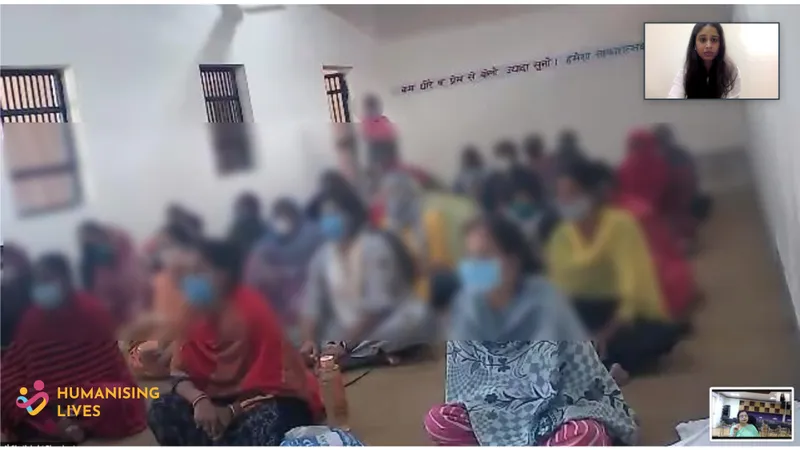
A session with female prisoners on mental and emotional well being (censored to respect privacy)
The non-profit also conducted sessions on “Pride and Proud” with a psychologist for the LGBTQ community to address their issues and concerns around discrimination, opening up to one's family, and the pressure of social expectations, leading to higher levels of depression, anxiety, substance use, and other mental health concerns during the first wave of the pandemic
“Most people have connected with us through social media or word of mouth from those who have taken the therapy. They have also found a great deal of trust in us,” says Ekta.
She adds, “It is truly rewarding when troubled minds are calmed. That is what we aim for and we have been lucky to be poured in with people's trust from all walks of life, irrespective of any boxes.”
Impact
According to the founder, people as young as 17 years of age from Rajasthan found solace through the non-profit by coming out of the closet to their families, and have credited the team for being an important facilitator.
“I have had four sessions of therapy with Humanising Lives so far, and I think just knowing that I sought help and am now being encouraged to seek further within to see where my issues stem from is a source of comfort,” shares one of the clients, Devashree Vyas.
Another client, Anna, says, “Humanising Lives’ free sessions really helped me understand myself and my equation with family better during the lockdown, without having to worry about the expense of therapy.”
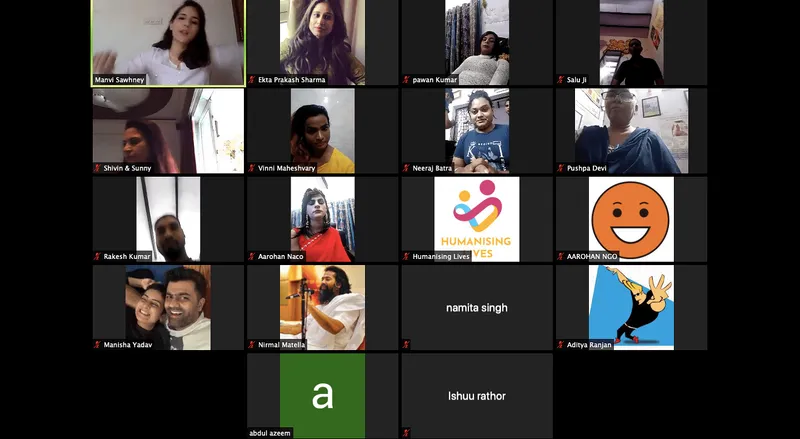
Online session with transgenders during the lockdown.
Humanising Lives has been able to bridge that gap and help people optimise their emotions. Most importantly, it makes people understand that while there may be some leftover friction, once they learn to tame their thoughts, they will learn to paddle through life themselves.
“We are still in the early stages of our journey and are constantly seeking good funding resources. Currently, we are banking on the personal social responsibility of each member of the team. I am personally investing all my time, effort, energy, and money,” says Ekta.
Challenges and the way forward
The challenges the team faced were around young adults seeking therapy, as many of them had to look for personal space or had to lie to seek therapy.
“While it is interesting to note that most issues that are seen in families are issues concerning all families, some of the problems faced by young adults are not even considered as a problem in many of the traditional families. Parents need to give space and let their kids address their sadness before it turns into depression and anxiety,” Ekta notes.
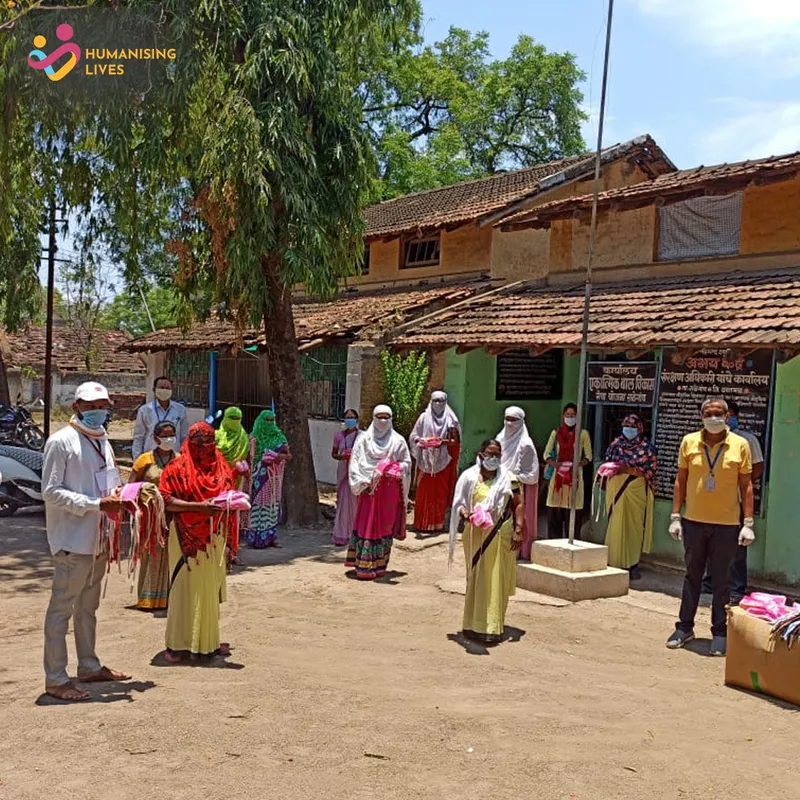
Masks and sanitary pads distributed to 160 Anganwadi Sevikas in Ralegaon (Maharashtra) during the pandemic as a part of "Periods don't stop for Pandemic"
Humanising Lives says it has tried to help people from all walks of life – teenagers, adults, old people, prisoners – both male and female, and marginalised sections of society such as the LGBTQ community.
“With the second wave of COVID-19 hitting India with unprecedented intensity, uncertainty and inaccessible resources are the primary concerns, we would relentlessly try to provide our pro bono therapy sessions to the people dealing with such a difficult situation,” says Ekta.
“Through our social media channels, we constantly try to motivate and uplift people through simple yet powerful reminders that we have to stay hopeful. This too shall pass because all of us are in this together,” she signs off.
Edited by Kanishk Singh

